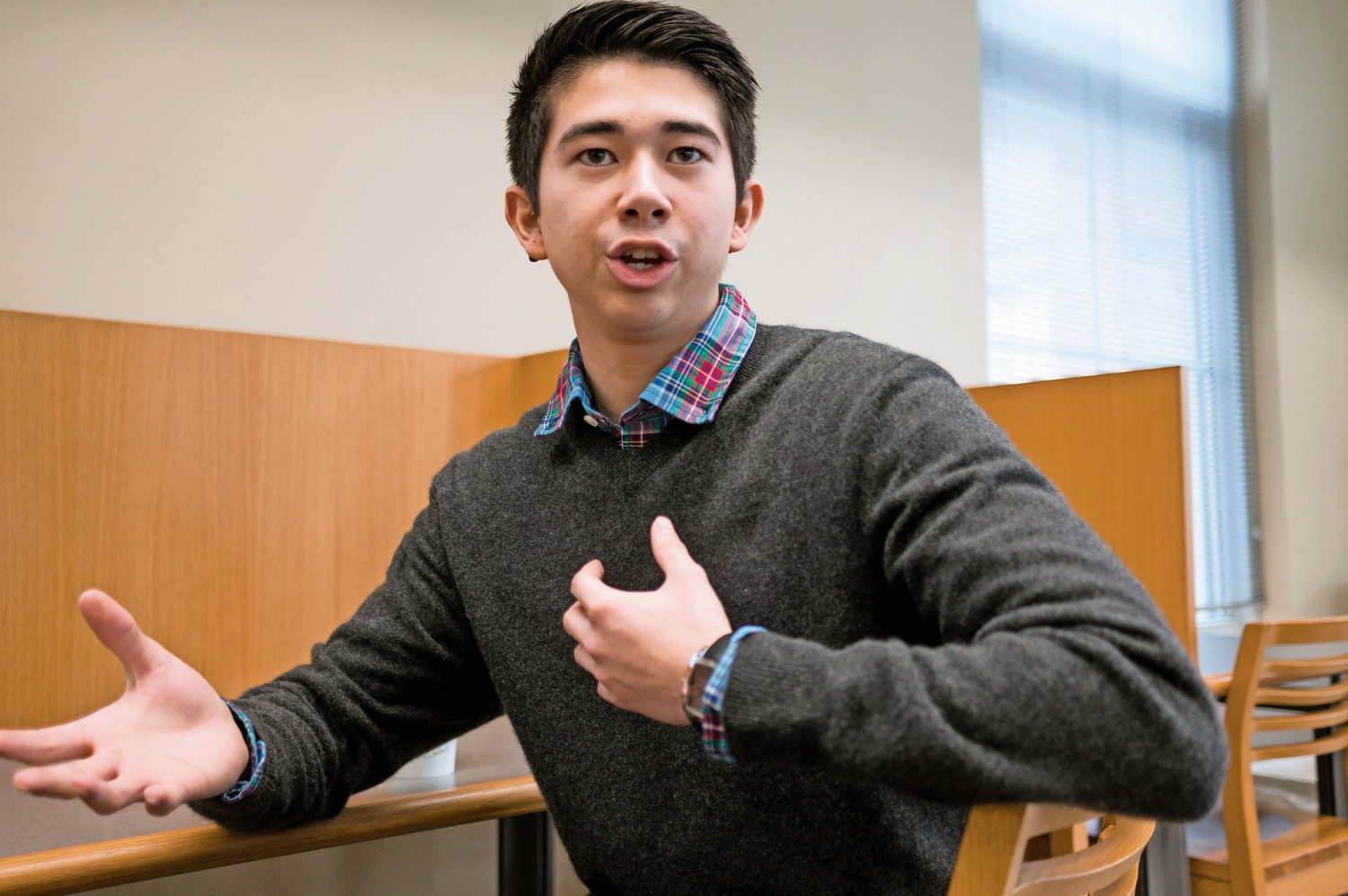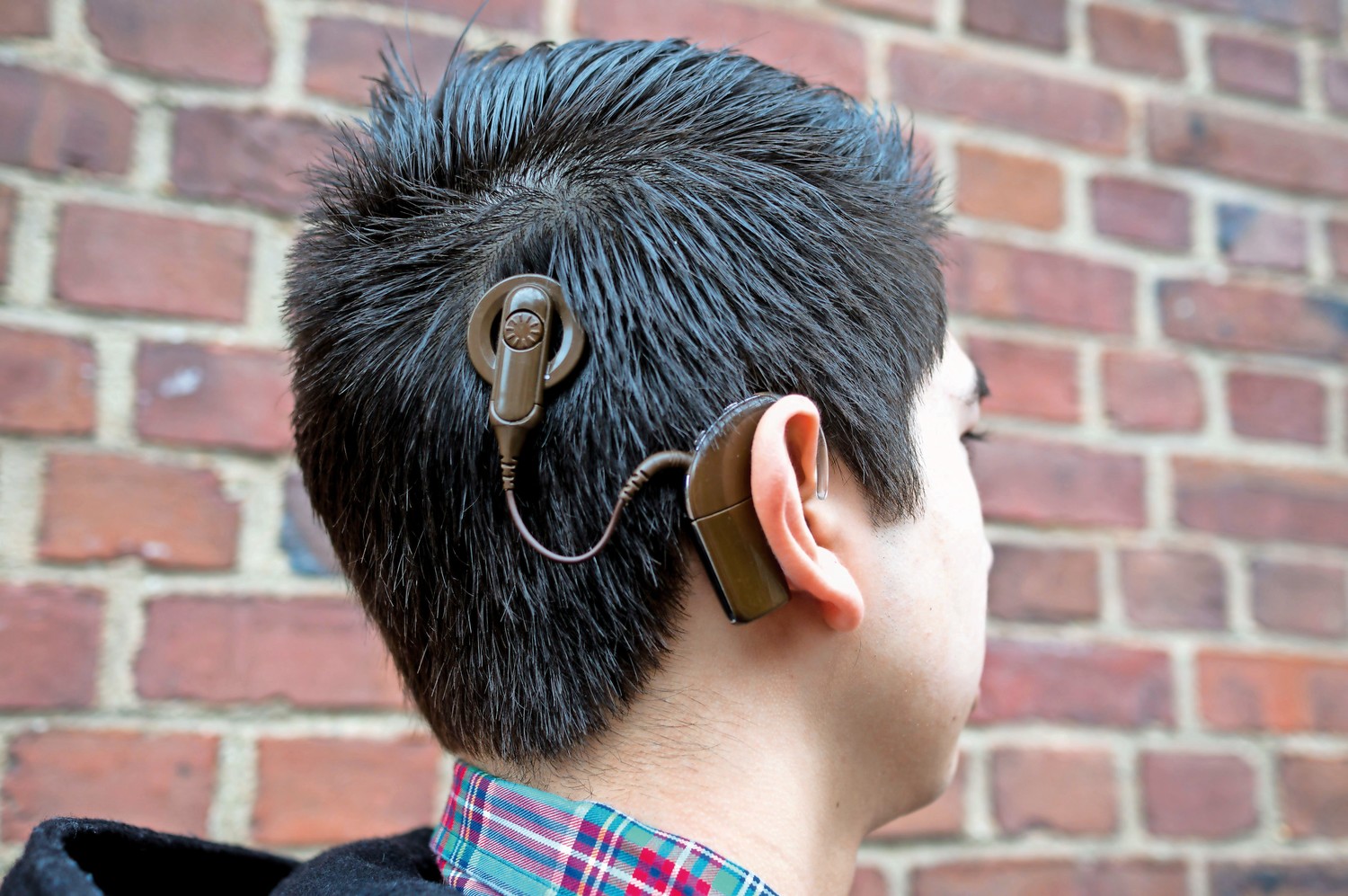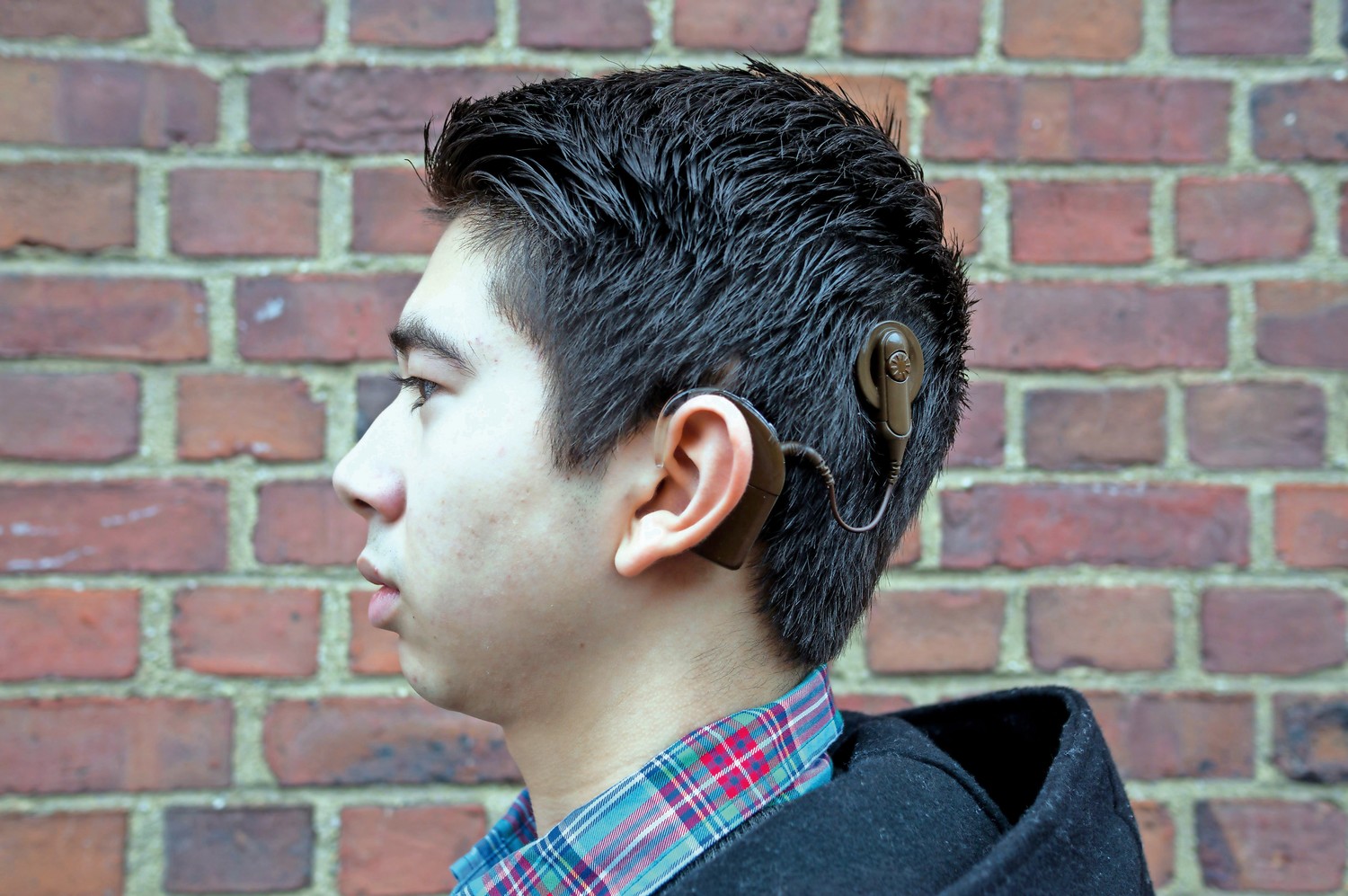No stopping him from becoming a doctor
Keenan Murphy’s alarm clock vibrates to the point that it literally shakes his entire bed. That means if his roommate wants to play “Call of Duty” at 4 a.m., Murphy has no problem with it.
“I just take it off,” Murphy said.
“It,” by the way, is Murphy’s cochlear implant device that has helped the Manhattan College freshman hear since he was a child.
Murphy’s family first got the news he was losing his hearing when he was 4. At first, they greeted the news with disbelief. But after taking their young child to several more audiologists, they confirmed that he had “profound” hearing loss in both ears.
As Murphy got older, he reached the point where he was completely deaf.
As a young child, Murphy wore hearing aids that amplified the sound around him. In class, his teachers wore small microphones so their voices could be picked up by his earpiece.
When Murphy turned 9, however, his life changed forever. His hearing aids would be replaced with cochlear implants.
“I felt like as soon as they were activated, they worked perfectly,” Murphy said. “It was an emotional moment, and just another step on my journey of hearing.”
Cochlear implants, like hearing aids, are small electronic devices that help with hearing loss, but takes it a step further. The implant channels sound past the damaged parts of the cochlear, directly stimulating the auditory nerve.
The implant allows the brain to recognize sound.
Cochlear implants require surgery. Murphy pointed to the small incision behind the base of his ear where the cochlear device was implanted.
“It was tough to reflect upon the process so far because it’s been 18 years,” Murphy said. “But it seems like it’s been in the blink of an eye, and it’s easy to forget the support and love and that has brought me here.”
Murphy is big on family, and regularly visits his Freehold, New Jersey home to visit his sisters, parents and nephew. And the implants make those visits even more memorable.
“Without it, I would not know what my nephew’s voice sounds like or be able to communicate with him,” Murphy said. “It warms my heart.”
Inspired by his own experiences, Murphy hopes to one day become a physician. He’s on the pre-med track at Manhattan College with plans that even include serving as a medic on a Navy base. That would follow in the footsteps of his father, who was a Naval petty officer, and his grandfather, who was an Air Force colonel.
Although he cannot enlist because of his disability, Murphy has found another way in: He could work at a base as a civilian during his residency. Through that, Murphy hopes to provide patients with the “reassuring hand” he has received, transforming his experiences into something meaningful for others.
Murphy attends Manhattan College with the help of the Graeme Clark Scholarship from the organization that developed his implants.
This $2,000 annual award is given to recipients based on their academic achievement and their performance in ideals based on leadership and humanity.
Murphy ultimately chose Manhattan College because of what he called the “world class” professors.
“We usually discuss students being inspired by teachers,” said Antoine Nicolas, one of Murphy’s professors. “But as an educator, I oftentimes come across students that inspire me and make me love my job even more. Keenan is one of those inspiring students.”
When applying for college, most schools ask students to write about an event or lesson that changed their life or taught them something invaluable. In Murphy’s application, he wrote about his hearing impairment.
“My disability has strengthened me and has allowed me to grow in the sense that I had to overcome many adversities in order to be successful in my life,” Murphy said.
“I am immensely appreciative of the transition that my hearing loss has provided me with, and it will forever remain the driving force that sparked my growth.”











